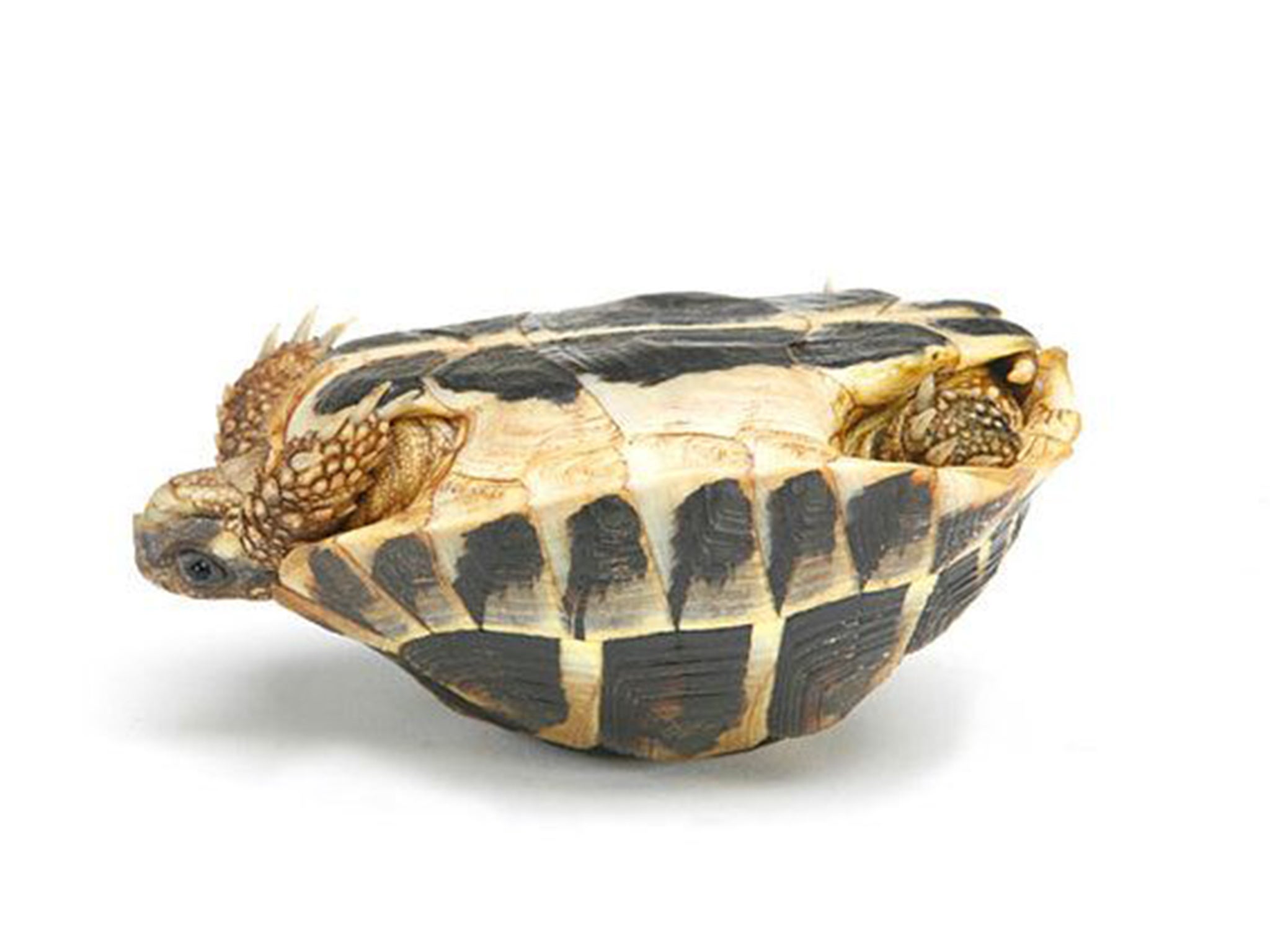The topsy-turvy world of the tortoise: a smaller shell helps them to walk tall
Larger specimens are less adept at righting themselves when they are flipped on to their backs, study finds

When it comes to housing, every little helps. And for a tortoise, the bigger the shell, the larger the animal, and the more able the fiercely territorial land-dwelling turtle is able to fight off rivals. Predators, droughts and even food shortages can be kept at bay. This accepted evolutionary narrative has been turned on its head, however, with the revelation that larger tortoises are less adept at righting themselves when they are flipped on to their backs.
Scientists have long known that if you upturn a tortoise, it will find its feet again, thanks to a clever combination of shell shape and leg and neck manoeuvres, but according to a new study, larger Hermann tortoises found in the Mediterranean are less capable of finding their feet than their smaller, more nimble relatives.
Self-righting is a serious business for armoured animals, including ocean-going turtles and cockroaches, because they often spend time in rocky areas and are liable to get stuck on their backs, legs flailing. However, it's an even deadlier matter for the Hermann tortoise, which is often overturned by belligerent males during fights over breeding grounds.
According to the study, led by Ana Golubovic, a researcher from the University of Belgrade, Hermann tortoises, which are found in Italy, France and the Balkans, can "easily lose their balance and end up on their backs" when covering rocky ground, or in encounters with predators; but contrary to accepted wisdom, the study found that there was "reduced righting performance in larger specimens, compared to smaller ones, in both sexes".
To discover this, Ms Golubovic's team conducted rigorous fieldwork and flipped 118 Hermann tortoises on to their backs to see how quickly they would recover. This meant travelling across Macedonia, Montenegro and Serbia to track down suitable animals – adults that the team ranked as "highly active".
There is evidence that "aggressive reproductive interactions" among these tortoises have led to an "evolutionary force towards large body size in males", which, while making solid evolutionary sense, also makes them more susceptible to being stuck on their backs.
The study, published in the Journal of Comparative Zoology, follows work at Princeton University, in the United States, which used a mathematical approach to discover that the ideal shell for self-righting would be a tall dome, rising to a peak and slightly flattened on one side. This shape is crucial to avoid ignominy, or worse, and many tortoise shells come very close to this ideal, although small imperfections can prompt frantic leg-waggling to help the tortoise to right itself.
A video of one tortoise helping another back on to its feet went viral on YouTube last month, after it was captured by a tourist at a Taiwanese zoo in November, but contrary to common perception, tortoises in the wild are solitary animals and will rarely come to each other's aid if they turn turtle.
Among the longest-living animals, tortoises are known for their calm determination and, it is to be hoped, an absolute lack of embarrassment about ending the wrong way up.
Subscribe to Independent Premium to bookmark this article
Want to bookmark your favourite articles and stories to read or reference later? Start your Independent Premium subscription today.

Join our commenting forum
Join thought-provoking conversations, follow other Independent readers and see their replies